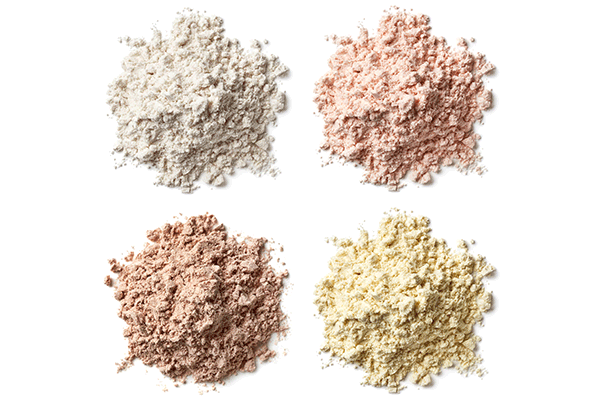Should You Be Using Whey Protein?

Eggs might have a reputation as “nature’s perfect protein,” but when it comes to building muscle and fueling athletic gains, it’s hard to imagine a protein more ideal than whey protein.
Quick-digesting, high in branched-chain amino acids, and a powerful stimulator of protein synthesis, whey trumps nearly every other protein in nearly every category related to muscle growth.
And if you need evidence of just how effective whey protein is in this respect, you need look no further than an infant.
“Never have you been or will you ever be in a greater anabolic [growth] state than you were during your first year of life,” said Australian strength coach Daniel Baker, Ph.D., C.S.C.S., during one of National Strength and Conditioning Association’s annual conferences.
“And the only substance you likely consumed during that period was breast milk, which is predominantly whey protein — even more so than cow’s milk.”
So there you have the short answer: If you’re looking to maximize the effects of training, you can’t do better than whey protein.
But even so, it’s not always the best choice for everyone or in every situation. If you’re a vegan or strict vegetarian, for example, whey protein likely isn’t even an option. Neither is it the best protein for optimizing overnight muscle growth.
So when, how, and under what circumstances should you supplement with whey protein? Read on.
What Is Whey Protein?
Whey is the liquid that’s left when curds are removed from milk. Once considered a waste product of the cheese-making process, whey liquid is then pasteurized and powderized for consumption as a supplement.
Whey protein is the most quickly digested of its ilk, including casein, which becomes custody of the curds during the separation process. That has implications for when it’s best to consume it (see below).
Types of Whey Protein

There are three main varieties of whey protein: whey concentrate, whey isolate, and whey hydrolysate.
The primary difference between the first two comes down to total protein content. In its pure, unadulterated form, whey is 40 percent protein. The rest is a combination of fats and lactose.
- Whey concentrate is filtered to remove some of those fats and lactose, and then dried to create a powder that is about 80 percent protein.
- Whey isolate undergoes additional refinement, resulting in a powder that is 90 percent protein. When you’re considering which supplement to buy, isolate is where your dollar will go furthest.
- Whey hydrosylate, which tends to cost more and taste bitterer, is a slightly different beast. Its protein content is in the ballpark of the other two variants, but it’s “pre-digested,” which theoretically means it should absorb faster.
“But whey protein already has excellent digestibility,” says Nima Alamdari, Ph.D. In short, there’s no clear advantage to dishing out the extra dough save your body a little extra digesting.
Whey Protein Benefits
Whey protein’s chief benefit is well known, but far less known is how it does it.
Muscle growth
As previously discussed, whey protein can help you build muscle faster, and it does so in a couple of ways:
First, it supplies your body with the aminos it needs to remodel your muscles into larger, stronger versions of themselves.
Second, just like the act of working out, eating protein stimulates protein synthesis.
That’s one more reason to have a protein shake after you train: “You get a stacked effect,” Alamdari says.
“You increase protein synthesis by working out, you increase it further by ingesting protein, and by ingesting protein, you supply your body with the building blocks it needs to make the most of the combined protein-synthetic response.”
Not only does it aid muscle growth, whey protein helps prevent muscle loss.
“In addition to stimulating protein synthesis, working out also stimulates protein breakdown,” explains Alamdari. “Ingesting protein post-exercise makes sure that the former process outweighs the latter.”
Recovery
There’s another benefit to supplementing with whey protein that most endurance athletes never consider.
“It can help accelerate glycogen resynthesis,” says Stephens. Translation: Energy resupply.
Glucose is your body’s go-to fuel source, and the faster you can replenish depleted stores after a workout, the less time you’ll need to recover before your next hard training session.
Science agrees: In a study of male cyclists, the researchers found that those who consumed carbs and protein post-workout replenished muscle glycogen (the stored form of glucose) significantly faster than those who just drank carbs or a placebo.
Keep in mind that we’re mainly just talking about endurance athletes here. If your cardio workouts skew towards HIIT, or if you focus on strength training, you’re not going to deplete glycogen stores as much, and therefore should concentrate almost entirely on protein post-workout. Glycogen can be replenished with meals.
How Whey Compares to Other Proteins

Whenever you eat protein — from any source — your body breaks it down into its constituent amino acids.
These acids are then reassembled in various forms to support nearly every process in the body — from regulating gene expression and facilitating nervous function to building muscles, ligaments, and tendons.
Of the 20 or so amino acids that are critical to keeping the body running, there are nine that it cannot synthesize on its own, and thus must come from your diet.
These nine are called essential amino acids (EAAs), and any protein that contains all of them in sufficient quantities is considered a “complete protein.” All animal proteins, including whey and casein, are complete.
But most plant proteins — including rice, pea, and hemp — are deficient in one or more of the EAAs.
“Plant proteins are good options for vegetarians and vegans, but they are likely inferior to dairy proteins for maximizing muscle protein synthesis,” Alamdari says
Of the nine EAAs, leucine is the standout when it comes to optimizing the effects of strength training.
“It appears to be a switch for turning on the molecular pathways that are necessary for muscle protein synthesis,” says Francis Stephens, Ph.D., a BODi scientific advisor and an associate professor of metabolic and molecular physiology at the University of Nottingham, in England. “And whey has one of the better leucine profiles.”
Whey also has another advantage over most other forms of protein you’ll find in the supplement aisle: A fast absorption rate, according to a study at McMaster University, in Canada.
That, combined with its high leucine content, is likely what makes whey the king when it comes to stimulating muscle protein synthesis, report the researchers.
How Much Whey Protein Should You Consume?
The short answer is 20 grams. That’s the amount that maximally stimulates protein synthesis, and ingesting any more at any one time provides no additional benefit, according to a study in the American Journal of Clinical Nutrition.
“That’s why 20 grams is the optimal serving size for Beachbody Performance Recover,” says Alamdari.
Of course, that’s the optimal serving size for most people. Every body is different.
“A large male or a bodybuilder is going to require more protein than a petite female,” says Stephens.
If you’d like to customize your dose to more specifically meet your protein needs, shoot for .25g to .3g per kilogram of body weight (1 kg equals 2.2 pounds).
“It’s also important to keep in mind that specific protein timing doesn’t matter if you don’t consume adequate daily protein,” says Alamdari.
The reason: You don’t just build muscle after a workout and while you sleep. It’s a continuous, 24-hour process.
Shoot for at least 1.3 g of protein per kilogram of body weight per day. And yes, your post-workout and pre-bed shakes count toward that goal.
The Best Time to Consume Whey Protein

“Because whey protein is digested and absorbed quickly, it is particularly useful post-exercise,” says Alamdari, who recommends consuming it within 30 minutes of working out to take full advantage of the increase in protein synthesis, which peaks in the hours following a training session.
To be fair, consuming just about any type of protein post-workout will positively impact muscle growth, according to a recent review in the American Journal of Clinical Nutrition.
It found that people who simply ate protein after working out for 12 weeks gained two more pounds of muscle than those who didn’t. But consuming whey boosts protein synthesis 122 percent more than consuming casein, and 31 percent more than consuming soy, according to the McMaster study.
And that’s why whey protein is (and likely always will be) the undisputed, post-workout muscle-building champion of protein supplements.
“There are other times of day, however, when other proteins are more attractive, such as pre-sleep,” says Alamdari.
In that case, slower-digesting casein is the way to go, providing a steady stream of amino acids and increasing muscle protein synthesis for up to seven and a half hours while you slumber, according to a study in the journal Medicine and Science in Sports and Exercise.
